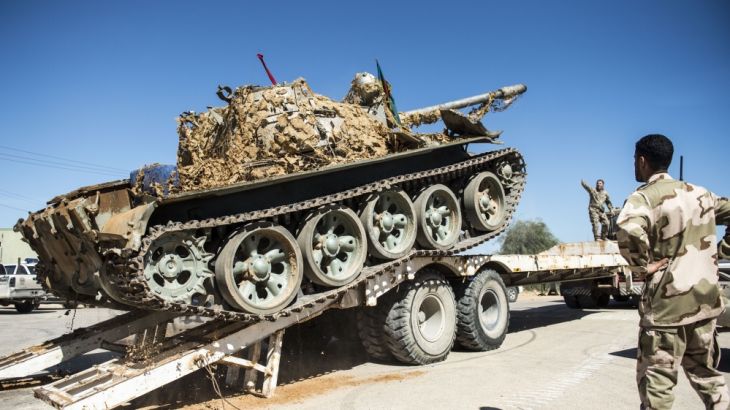
Are more arms the answer for Libya?
Libya’s UN-recognised government asks for fighter jets, tanks and helicopters to combat ISIL.
Four years after the uprising that toppled longtime leader Muammar Gaddafi, Libya remains a nation divided.
Rival governments and their respective armed forces are competing for power, as opposing militias battle for control.
Keep reading
list of 4 itemsEx-French leader Sarkozy faces 2025 trial over alleged Libya corruption
Gaddafi and Lebanon’s ‘vanished imam’ who divided the Middle East
Why is Hannibal Gaddafi on hunger strike in a Lebanese prison?
Now the UN is warning that the added threat posed by ISIL is “real and imminent”, adding that the group will “stop at nothing” to consolidate its influence.
The UN-recognised government in Tobruk is pressing for the easing of an arms embargo, so it can get hold of heavy weapons to fight ISIL.
It is also taking part in UN-brokered talks in Morocco, along with Libya’s legally-installed government in Tripoli.
Mediators are trying to get the two camps to form a government of national unity.
But can the rivals agree to work together against a common enemy? And are more munitions the answer in a country already awash with weapons?
Presenter: Sami Zeidan
Guests:
Mohamed Eljarh – a Non-Resident Fellow at the Rafik Hariri Centre for the Middle East.
Oliver Miles – a former British Ambassador to Libya.
Anas El-Gomati – Director of the Sadeq Institute, a think tank based in Tripoli.